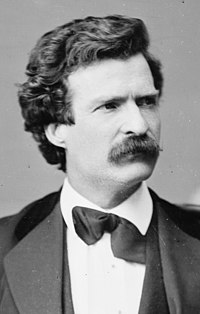Greetings readers, bloggers, geeks, and authors and welcome to The ToiBox of Words. I’m your host Toi Thomas, author of Eternal Curse, and today I have a treat to share. A while back, I had the pleasure to interview a wonderful author named, Dakota Douglas. A good time was truly had by all, and here’s how it went down.
Toi Thomas: Hi there Dakota! It’s so awesome to have you here at the ToiBox Blog. I’m excited to learn more about you and your work.
Dakota: Hello Toi, I am honoured and delighted to be invited here to share with your and your readers a little bit about myself and my work.
Toi Thomas: So tell me, who is Dakota Douglas?
Dakota: As a kid, I gobbled up books and would read under the bedclothes by torchlight when I was supposed to be asleep. At school, I’d read a book concealed under my desk during a boring lesson. That’s a terrible confession – but true. Books fired my imagination and took me to fabulous places – real and imaginary. I started writing my own stories from about the age of eight. That led me into a career of journalism. Now I’m retired and have the time, I’m fulfilling my childhood dream of being an author.
Toi Thomas: What a sweet life filled with reading and writing. I can’t wait to learn more.
Toi Thomas: So, before we dive into your special message today, let’s get to know you, the person inside the author.
Toi Thomas: What makes you geek out?
Dakota: I play golf three times a week. Some people quote Mark Twain and say it’s “a good walk spoiled”. They’ve obviously never played the game. The great Arnold Palmer said: “Golf is deceptively simple and endlessly complicated”. It’s a challenge every single time you play.
Toi Thomas: I must admit, I tried it was not good at it, but I still enjoyed going through the motions. I do like sound it makes when club hits ball.
Toi Thomas: Now, what was your favorite book or story, pre-teen years?
Dakota: I couldn’t get enough of Enid Blyton. I didn’t have one favourite. Her Faraway tree series transported me into a world of fairies, pixies, elves and goblins, and I wanted to be one of the characters in The Secret series, Famous Five series and Adventure series.
Toi Thomas: I think a saw a movie about her, though I admit I’ve never read any of her books. I think I also remember there has been controversy around some of her work, which I’m sure helped book sales. People will ban something just to go out and by it with complaint. I don’t get it.
Toi Thomas: In terms of interviews, whose brain are you just itching to scratch?
Dakota: Crazy Horse, ca. 1840-1877, an Oglala Sioux indian chief, visionary leader and legendary warrior who fought at The Battle of the Little Big Horn. He was an independent spirit who resisted oncoming civilisation and removal to an indian reservation. He fought to protect his people’s traditions and his way of life. I’m fascinated with the culture of the Plains Indians and would love to hear first hand about his dreams, hopes and fears; to know what made him laugh and cry and made him tick.
Toi Thomas: I like this choice. Aside from sounding highly esteemed, this would indeed be a fascinating interview because of who this man was and still is. This is a real answer, just the kind I like.
Toi Thomas: Now that we know a little more about you, the person, let’s learn about you, the author, and dive into your special message.
Toi Thomas: So whacha got for me today?
Dakota: My illustrated children’s book ANTics is for ages 7+. It’s a fantasy set in an English country garden about a nest of ants. Urghhh! I hear you say. But listen up, my ants are charming and cute. ANTics is a fun story packed with adventure and many exciting twists and turns The characters have names that describe their personalities and all end in ant. Interesting facts about ant life are woven into the story and there are some interactive ideas at the end. See a review here.
Toi Thomas: This sounds like a fun adventure that I bet will be quite a lesson teacher. Ants have their own special civilization so it shouldn’t be difficult to make comparisons about the way they live and we live.
Toi Thomas: So who’s starring is this 2 dimensional script read of ANTics?
Dakota: Zube – short for ExuberANT is the size of a grain of rice, has six legs, two antenna, two stomachs and fangs that pack a nasty bite – but don’t hold that against him. He’ll grow on you quicker than moss on a tree. As his names suggests he’s high spirited and full of fun. He’s cheeky, street smart and can read minds – which comes in handy when there’s always something bigger than he is and is ready to pounce on him and gobble him up for a quick snack.
Toi Thomas: I’m already in love with your character names if Zube serves as an example. I want to know more.
Toi Thomas: What’s so special about this story that’s going to reel in the readers?
Dakota: ANTics is funny and exciting. Reviewers have said they were so eager to read what came next that they couldn’t go to bed until they finished it. The way I write is to visualize a scene like a movie and describe what I see, so young readers can easily see the action as they read.
Toi Thomas: Funny and exciting is a good combination. If you can entertain people, any lessons learned along the way is what I like to call “gravy”.
Toi Thomas: Past, present, future, is there a rhyme or reason to your writing?
Dakota: I blast away as fast as I can to get my ideas down. I don’t worry about accuracy. At the next writing session, I edit to put me in the mood of the story. I don’t have a road map that I rigidly follow. I know where I’m going, but take different routes to get there. My characters take on a life of their own in my head and talk to each other, carrying the story forward themselves. I write on a PC in my office, drink orange soda, eat chocolate and with only the sound of nature outside.
Toi Thomas: I like your writing methodology. Getting the ideas formed into a story is the most important at the beginning. I also like that you consume chocolate while you work. Any mention of chocolate make me happy.
Toi Thomas: What author(s) has most influenced your writing? Why or how?
Dakota: I adored JM Barrie’s Peter Pan and Lewis Carroll’s Alice in Wonderland. They fired my imagination as a child. These days, no one author in particular influences me. I’m like a sponge. I absorb everything I read. A word here, a sentence there are like nuts that I squirrel away.
Toi Thomas: I can understand that and can relate it. I too find I’m influenced by many rather than a precious few. Also like you, Barrie holds a special place in my heart.
Toi Thomas: Now this is where the questions get a little kooky; are you ready?
Dakota: Yes.
Toi Thomas: If you could only watch one movie for the rest of your life, what would it be?
Dakota: Only one! Hmmmm, I could say, Lonesome Dove, Dances with Wolves, Thunderheart, Doctor Zhivago, Brother Bear, Baby Boom – but I’m not. I’m saying Some Like It Hot. Why? Boop-boop-a-doop! Because it’s fall over funny, sexy and I love the main stars; Marilyn Monroe, Jack Lemmon and Tony Curtis.
Toi Thomas: I was just talking about this movie with someone the other day. Monroe walking down that platform is an iconic film image that’s tough to top…Did you make a Betty Boop reference? 😉
Toi Thomas: Not that you can see into the future, but in your opinion, what does the future hold?
Dakota: If it’s like the last five, it will be exciting. I worked for over 30 years as a journalist, then took early retirement with only a few weeks notice. I began writing novels and have two out so far. I have lots of ideas for other children’s stories – a sequel to ANTics, one about global warming, two inspired by my love of the American West, and an historical romance that came to me in a dream. So I should be pretty busy. And hopefully more organised than I am now. Maybe with a secretary paid for out of my Royalties.
Toi Thomas: I like this. Plans for the future filled with optimism is always a good sign. I truly wish you all the best in your endeavors.
Toi Thomas: Thank you so much Dakota for spending time with me today.
Dakota: Thank you, Toi for having me as your guest. It’s been a great pleasure to join you. I wish you well with all your writing endeavours and hope your readers get lots of enjoyment from their reading choices.
Okay readers, bloggers, geeks, and authors, that’s all for today. Be sure to follow this blog to see who will be visiting next time. For more from Dakota Douglas, check out these great links:
Website: Dakota Douglas
Blog: Blog4Kids
GoodReads: Dakota Douglas
Twitter: @_DakotaDouglas
LinkedIn: Dakota Douglas
Purchase links for ANTics: Amazon
Thank you for taking the time to read this post. If you like it let me know and share it with others. See you next time, Toi Thomas. #thetoiboxofwords






